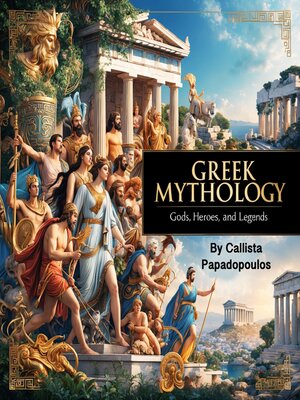
Sign up to save your library
With an OverDrive account, you can save your favorite libraries for at-a-glance information about availability. Find out more about OverDrive accounts.
Find this title in Libby, the library reading app by OverDrive.



Search for a digital library with this title
Title found at these libraries:
| Library Name | Distance |
|---|---|
| Loading... |
This audiobook is narrated by a digital voice.
In the beginning, according to the ancient Greeks, there was only Chaos, a void of primordial darkness from which all existence would eventually emerge through a complex process of cosmic evolution that would establish the divine hierarchy and natural order that governed both the mortal and immortal realms. From this initial state of formless potential arose the first generation of primordial deities, including Gaia the Earth, Uranus the Sky, Erebus the Darkness, and Nyx the Night, whose unions and conflicts would set in motion the dramatic succession of divine generations that would culminate in the establishment of Zeus's rule on Mount Olympus and the creation of the world as the Greeks understood it.
The cosmogonic myths that described the creation of the universe served multiple functions within Greek culture, providing not only explanations for natural phenomena and the origin of human existence but also establishing the theological frameworks that justified social hierarchies, political institutions, and moral principles that governed Greek society. These creation stories demonstrated how order could emerge from chaos through the exercise of divine will and the establishment of proper relationships between superior and subordinate powers, creating templates for understanding both cosmic and human organization that would influence Greek thought for centuries.
The Theogony of Hesiod, composed in the eighth century BCE, provided the most systematic and influential account of divine genealogy and cosmic development, tracing the evolution of the universe from its chaotic origins through successive generations of gods whose struggles for power and authority reflected the ongoing tension between order and disorder that characterized both divine and human experience.







